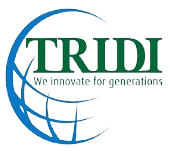Why you must test your soils
June 26, 2021Sericulture’s steady profits attract hundreds of female workers in Northern Uganda
July 2, 2021The spell of unemployment brings with it a series of complicated living conditions and hardships that are hardly manageable.
In Uganda, many suffering under this spell are the young generation lies in the bracket of 15-35 years, both educated and uneducated.
For the educated populations, the spell has rendered many ‘boomerang children’ who after school, move back in with their parents when they fail to get jobs.
It gets harder to cope with unemployment when all incomes are lowered for households, therefore, many resort to finding other means of survival, agriculture being the first take, considered.

Tropical Institute of Development Innovations (TRIDI), through its project, Commercialization of Sericulture Technologies and innovations in Uganda, has set forth to sustainably transfer new technologies that will contribute to increased economic growth through silk production, an agri-based enterprise.
Sericulture is the art and science of rearing silk worms for the production of raw silk and the end product is silk.

TRIDI envisions that, the project will create improved household incomes through job creation hence eradicating unemployment among the populations, with the embrace of silk production.
Clet Wandui Masiga, PhD, the Project Principal Investigator, says TRIDI being a Training, Research and Development organization, is dedicated to bring the population aboard, so citizens can have better livelihood through employment opportunities obtained through sericulture.
Aggrey Waiswa Muherwa, a project supervisor at the National Sericulture Resources Research and Development Center, in Namasumbi, Mukono District, in agreement says, this project will better lives of farmers a great deal because silk is highly profitable in returns, and this is on a monthly basis.
Sericulture outputs can change the lives of many unemployed populations seeking ways of making a decent living and being able to earn a stable house-hold income to sustain their families.
Mr. Tom Kyebanakolanga, a farmer and TRIDI field officer, confesses that he has been practicing sericulture in Uganda from the 90’s even before joining TRIDI and the profits are huge, they have sustained him and his family all this time and keep getting better.
He adds that silk production is very profitable and could take Uganda to greater heights in development.
While at the TRIDI Capacity building training recently, Mr. Nabboth Nugume Ngambe, Sheema District entomologist, in his Seri-economics presentation, said sericulture is creating a great poverty eradicating situation in the country.
He explained that Seri-economics, which he defined as the economic sense of Sericulture, give off high profits.
He expressed joy that sericulture was now in Uganda, and doing much better than it did in 2015, thereby creating job employment opportunities for Ugandans.
He added that sericulture, is a higher cash value enterprise as compared to other cash crops grown, silkworm production outputs are much higher than for cotton, coffee, tobacco, sugarcane.
This not only assures one of an improved income status but also can be a full-time stable job, earning them a stable household income, at the end of the day.
Clet Wandui Masiga, PhD, the project Principal Investigator says that, this silk project is a ‘pot of gold’ that is changing lives on a daily, this explains its high demand wherever projects have been established, not only in Uganda, but the rest of the world as well.
The silk industry has overtime boosted great economies to wealthy statuses given the high value outputs that are acquired from production.
Evidential statistics from International Seri-cultural Commission (INSERCO), portray China, as the largest producer and supplier of silk in the world. Other countries are India, Brazil, Japan, Republic of Korea, Thailand, among others.
These countries, have benefitted from sericulture as there is a great percentage of employment that the industry has created.
INSERCO records over 7.9 million employed in India, about 1 million in China, and 20,000 silk weaving families in Thailand.
China is a greatly independent economy and should be the one look-up for Uganda in her poverty and high unemployment eradication goals.
It is evidential that the economic development in these countries have received a great lean-on from the silk-production industry.
With the existing opportunity by TRIDI, sericulture could change Uganda at the flip of a switch if embraced by the population, since silk production has been proven to be very profitable, as seen with China, Japan, Korea and India.

TRIDI’s Commercialization of Sericulture Technologies and Innovations in Uganda project, is already showing prospective success through expansion and sericulture dream realization in Uganda, plus granting employment to many youths across the country as employees ranging from supervisors, operations managers, field officers, extension workers, farmers among others; Uganda stands a great chance of achieving most of its VISION 2020 goals.
This draws our attention to seriously consider the fact the silk production could be the next poverty and unemployment eradicating move that farmers and the country, generally, could embrace to ensure that Uganda has better days, tomorrow.
Story by Mercy Scarlet Kigai, P.R.O TRIDI

